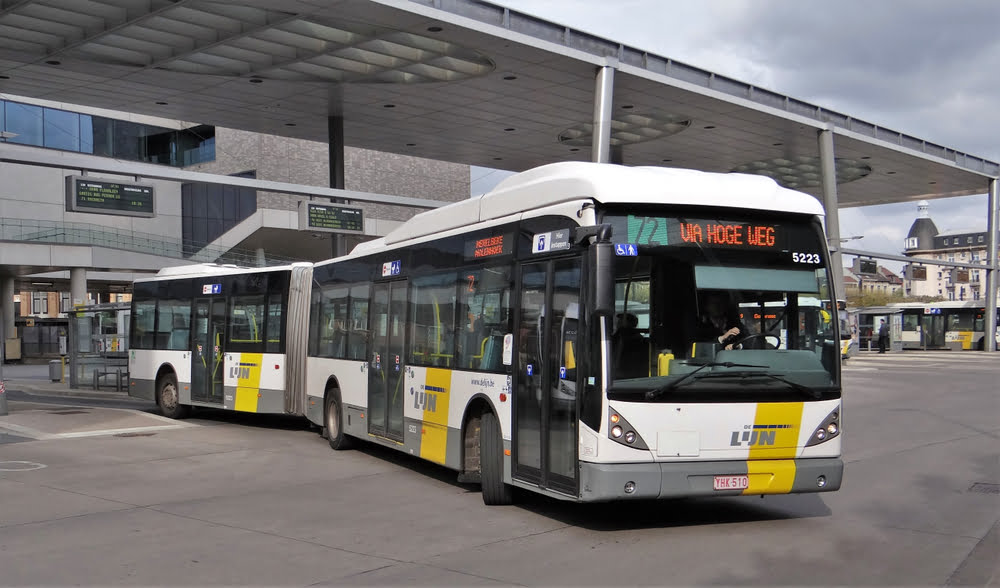De Lijn has decided not to start up urban autonomous transport projects for the time being. This was decided after a feasibility study and in joint consultation with the partner cities Genk, Leuven, Antwerp and Mechelen. The original objectives of the pilot projects were not yet achievable within the current context. The Board of Directors of De Lijn confirmed this decision today.
De Lijn started a first project together with Brussels Airport Company autonomous transport in 2018. In the meantime, the self-driving shuttle at Brussels airport has completed its first journeys. De Lijn, Antwerp, Genk, Leuven and Mechelen decided to jointly analyze the possibilities for urban projects with self-driving transport. They had to meet the various criteria for autonomous transport as closely as possible (technical feasibility, passenger potential, affordability, ...)
"Unfortunately, it has turned out that a self-driving shuttle between Arenberg and the Vaartkom is not only very costly but also technically difficult to realize", explains Leuven's mobility ships David Dessers. “In the new network plan, the well-known De Lijn buses will ensure a smooth connection between Arenberg and the Vaartkom. In the meantime, we remain fully committed to high-quality, attractive and sustainable public transport. After all, by 2030 we want to double the number of public transport users in order to keep the city accessible and to achieve our climate targets. "
After an initial development process, urban autonomous transport was to be started up. Among other things, this was always based on a significant mobility value, of vehicles without a safety steward, and an operational cost lower than that of conventional transport, so that the high development costs and start-up investments could be recouped in the long term. Subsequently, a negotiation procedure was started in order to be able to work out the projects in dialogue with potential manufacturers.
The market for autonomous transport does not appear to have reached the previously announced technological evolution in recent years. Leaders in the technology race still prefer to invest in development rather than commercialization. Due to performance and reliability, the technological options offered were not yet suitable for complex urban traffic situations. All these elements had a significant impact on the cost picture, as a result of which the development costs and project prices were considerably higher, and Covid19 also creates additional pressure on budgets. The combination of these different factors ultimately ensured that the specific needs of De Lijn and the cities involved were not met. The conclusion was that the envisaged urban autonomous transport projects were not yet feasible within the set preconditions. De Lijn and the partner cities subsequently decided in good consultation to stop the negotiation procedure and not to award the contract.
Project preparation and negotiations conducted with technology providers have been a very interesting learning process for all involved. De Lijn will therefore include the learning effects in its future projects and in the autonomous transport project at Brussels Airport.
“De Lijn will continue to closely monitor autonomous transport and its further development, such as with Brussels Airport Company and constructor 2getthere at Zaventem airport. We are also fully committed to the digitization of our offer and the electrification of our vehicle fleet. We believe that today is not the right time to start additional autonomous transport projects as well, but we are further preparing for a future in which groundbreaking innovations will allow us to further optimize the offer for the customer ”, says Roger Kesteloot , director general De Lijn.
Also read: Ann Schoubs appointed as new director general De Lijn




